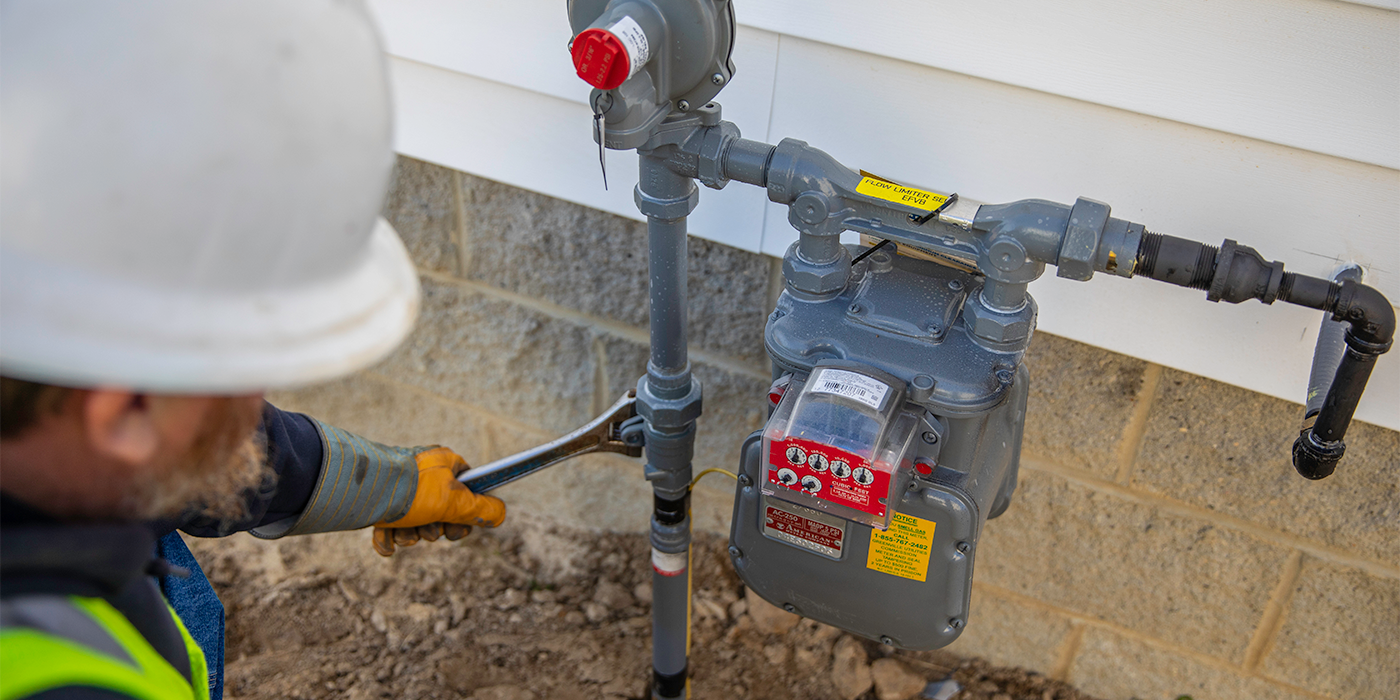
As temperatures rise in the spring and new leaves and flowers replace the old ones, Gas Department staff are also replacing old meters throughout the GUC system. It’s part of a program each spring through fall to ensure gas meters are safe and working properly.
Gas meters have a life expectancy of 30 years. The North Carolina Utilities Commission requires gas utilities to have a program where meters are replaced with another meter so that they can be tested for leaks, integrity, and accuracy. This ensures the meter’s safety and that customers are accurately billed for the gas they use.
While all gas meters are visually inspected every three years during the annual leak survey (see Spotlight story from last spring), meters are changed out and inspected after approximately 15 years of service (half the expected life).
Once a meter is selected for the change-out, the customer is notified about the process by mail. Crews then make the switch. If an adult is not home at the time of the switch, the gas is locked out (off) so that no accidental leaks can happen inside, and an informational doorhanger is left behind. The customer must then call for an appointment to be made for crews to come back and re-light all appliances when the customer is home.
Back at the shop, meter technicians test the meter for accuracy and replace the batteries for the automated meter reading system. “Replacing the batteries is an important part of the process,” said Carl Smith, Gas Distribution Engineer. “Batteries have a limited life and replacing the batteries help ensure the meters accurately measure and transmit readings every month.”
In the end, some meters are cleaned up and/or refurbished and returned to service for another 15 years while others are replaced with newer meters and retired.






